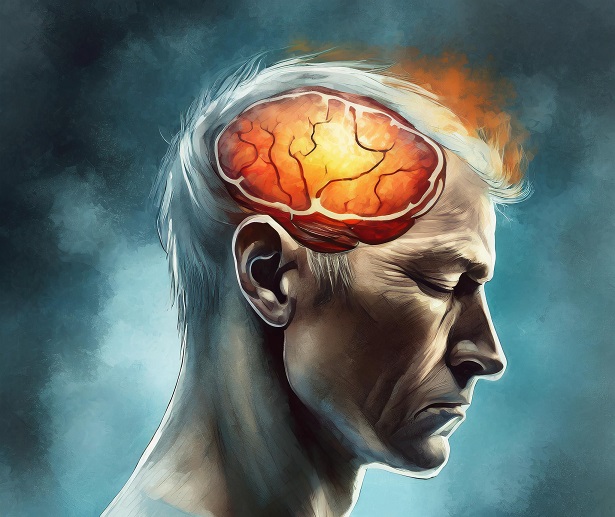Millions of Muslims fast from sunrise to sunset each day during the holy month of Ramadan as a sign of devotion and to engage in spiritual introspection.Fasting has been shown to have positive impacts on physical health, but scientists in the United Arab Emirates have recently suggested that it may also have positive consequences on Muslims’ mental health.
Fasting can assist with depression and anxiety
The belief that fasting has beneficial impacts on mental health is rising, according to Dr. Nada Omer Mohamed Elbashir, a consultant psychiatrist at Burjeel Hospital in Abu Dhabi.
She told Al Arabiya English that people who fast have shown improvements in their symptoms of stress, despair, and anxiety. Within the second week of fasting, they also reported less weariness. This might be explained by promoting ketone metabolism and its anti-inflammatory properties, which help to reduce stress.
Essential chemical elements of the brain are neurotransmitters. They transmit signals that impact not just how we behave, speak, and think, but also how we feel. Serotonin is a neurotransmitter that has been closely related to depression and anxiety once it is depleted, and numerous studies have demonstrated that fasting can boost the quantity of serotonin in the blood. Fasting seems to have no effect on the neurotransmitter dopamine, which has also been significantly connected to depression and psychosis. More research is being done, nevertheless, and may eventually show differently.

However, the doctor emphasised that it’s crucial to highlight that fasting during Ramadan is not advised for people who are at risk for medical issues or those who already have mental health conditions. It is crucial for persons who are fasting to keep a close eye on their physical and mental well-being and to seek expert assistance if needed.
Those who require medicine to maintain their mental health should see a doctor before to the holy month.
She stated that timing and dosage of medications were crucial, particularly when therapeutic blood levels were needed. It is important to continue taking the prescribed drugs for those with schizophrenia and bipolar illness.
During Ramadan, many people had difficulty changing their prescription dosages during the day. If fasting is chosen, it is advised that the medication be taken as directed, though timings can be changed to Iftar or Suhoor. If you decide to fast and change the time, it is strongly suggested that you get your doctor’s advice on which medications to take.
A decrease in anxiety
Many studies have indicated that fasting can improve mental health, including lowering stress, anxiety, and depressed symptoms, according to Dr. Farinaz Aghajan Nashtaei, a specialised psychiatrist at International Modern Hospital Dubai.
For instance, one study revealed that individuals’ tension and anxiety levels significantly decreased after they observed the Ramadan fast. A different study discovered that fasting can improve neuroplasticity, which might help to lessen depressed symptoms.
According to Dr. Nashtaei, research has also revealed that fasting can reduce neurodegeneration and increase functional recovery following a stroke, in addition to these advantages for mental health. Fasting has been shown to promote cognitive performance and prevent age-related cognitive decline.
Increased plasma levels of ghrelin and serotonin, which can boost mood and cognitive performance, are likely to be one major neuroendocrine mechanism that mediates these effects.
But, according to the expert, Ramadan fasting can also be harmful to one’s mental health.
Anger, mood swings, and attention issues can be brought on by dehydration and weariness. Anxiety, despair, and stress can also be brought on by changes in food and sleeping habits. Due to alterations in their social engagements during the month, some people could also feel isolated and lonely.
Exercise self-care.
In order to maintain their mental health, Dr. Nashtaei advises those who intend to fast during Ramadan.
It is possible to avoid physical symptoms that can have an impact on mental health by getting enough nutrition and fluids during non-fasting hours. Isolation and depression symptoms can also be lessened by being active physically and maintaining social ties.
Practice self-care, she advised, if you want to keep your physical and emotional health in check throughout Ramadan.
This entails maintaining a hydrated state, getting enough rest, exercising regularly, and using relaxation techniques to reduce stress. It also includes eating a balanced and healthy food during non-fasting hours.
Before making any modifications to their medication or treatment regimens, those with pre-existing mental health disorders or chronic illnesses must speak with their healthcare practitioners.
Ramadan may be a meaningful and gratifying experience that fosters both spiritual and physical well-being if one takes the necessary precautions and pays attention to their requirements. Self-care can be prioritised throughout Ramadan to help people stay healthy while participating in this significant religious tradition.
According to Dr. Sushil Garg, Consultant Neurology at NMC Royal Hospital, those who are fasting throughout the holy month of Ramadan would experience changes in their eating habits, sleeping patterns, and daily routines, which may have an impact on their physical and mental health.
People can ensure they have a healthy and spiritually gratifying Ramadan experience, according to him, by taking the necessary steps to care for their physical and emotional well-being.
According to Dr. Bobby Baby Panikulam, a specialist neurologist at the LLH Hospital in Abu Dhabi, the holy month of Ramadan is extremely significant because it is a time for physical, mental, and spiritual detoxification and renewal.
However he advised that there are some precautions that people with chronic illnesses must take to prevent neurological issues like headaches, migraines, and seizures.
Due to dehydration, a disrupted sleep-wake cycle, caffeine withdrawal, and low blood glucose levels that happen during fasting hours, some mental health conditions may worsen during Ramadan.
Fasting patients with ongoing neurological conditions including multiple sclerosis and stroke should constantly watch for any new symptoms and seek emergency medical attention if they develop. Migraine sufferers should stay away from anything that can cause migraines during Ramadan, such as strong lighting, loud noises, and stress on the body and mind. Reduce your coffee intake, and don’t smoke too much before or after Iftar.
From Iftar to Suhoor, the doctor advised staying well hydrated and following a balanced, healthy diet free of processed foods and fried meals, low in salt.
Aim for multiple meals at intervals to improve the symptoms and increase the energy levels needed during fasting hours.,” he said.
“Try to rest for a couple of hours before breaking fast. Neurology patients must also make sure to get plenty of sleep. Adhering to meditation and prayers during Ramadan can help you stay calm and grounded, enabling you to cope with stress and negative emotions.”
Click here for more information.
Author: Muhammad Asim
 Shalkot The Innovators
Shalkot The Innovators





